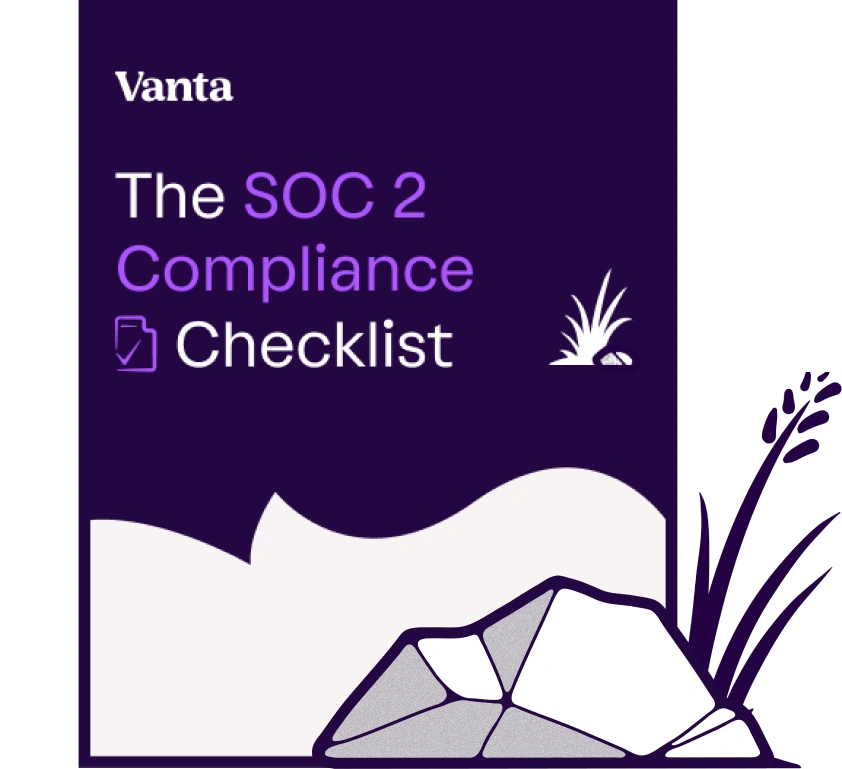Share this article

The risks of waiting on compliance
Accelerating security solutions for small businesses Tagore offers strategic services to small businesses. | A partnership that can scale Tagore prioritized finding a managed compliance partner with an established product, dedicated support team, and rapid release rate. | Standing out from competitors Tagore's partnership with Vanta enhances its strategic focus and deepens client value, creating differentiation in a competitive market. |
Startup founders constantly face competing demands as they build and scale their businesses. Engineering, product design, and sales all have legitimate claims to be the most urgent priority and sole focus of attention.
These pressures lead many founders to defer security and compliance investments until later. With small teams and limited financial resources, founders top priorities are building their product and acquiring their first customers. But it’s just as important for startups to establish robust security processes and earn key compliance certifications at an early stage.
Founders should think of compliance as one of those first few foundational things you can do in your company’s life cycle. Getting compliant now staves off a more expensive and time-consuming process later while boosting existing customers’ trust, closing new deals faster, and attracting interest from upmarket and enterprise customers.
With a full understanding of the hidden costs of delaying compliance and the benefits of not waiting, founders can make a clear business case for getting compliant from the start.
The hidden costs of delaying compliance
Many founders wait on compliance because they’re concerned it’ll divert cash and personnel they can’t afford to spare. In reality, pushing off investments in a scalable, automated compliance program carries both direct and indirect costs for startups:
- It’s more expensive and time-consuming to do later: It’s less costly for a smaller company to develop a formal compliance program and prepare for an audit. You have fewer employees to run through background checks and security awareness training. Your tech stack is simpler, with fewer tools to validate for security compliance.
- It delays or impacts deals with new customers: For many companies, SOC 2 compliance is table stakes for any vendor they’d consider working with. If you can’t furnish a SOC 2 report, you’ll miss out on those deals.
- It limits access to the enterprise market: Upmarket and enterprise customers are especially strict about vendor compliance. In Vanta’s State of Trust Report, nearly two-thirds of organizations say that customers, investors, and suppliers increasingly require demonstration of compliance. If you can’t meet customer compliance requirements, your company won’t be able to scale.
- It hurts existing customer relationships: Vanta’s State of Trust Report also found that 50 percent of businesses have terminated a vendor relationship over security concerns. By putting off the development of a formal compliance program, you increase your startup’s risk of being unable to sustain its existing customers’ trust—and may jeopardize those critical relationships.
- It increases reputational risk for your company and its customers: Vanta’s State of Trust Report also found that 48 percent of organizations believe good security practices increase customer trust in their business, up from 41 percent in 2023. Meanwhile, 62 percent of organizations say that third-party data breaches negatively impact their reputation, while fewer than 25 percent rate their visibility into vendor compliance as “very strong.” In other words, by investing in a formal compliance program now, your startup validates its security posture while reducing the risk of significant lapses—and the reputational fallout they could bring.
{{cta_withimage12="/cta-blocks"}}
The benefits of automating compliance now
Companies often talk about compliance as a box to check, but the reality of compliance is that it’s an ongoing, evolving practice. The earlier you begin a formal program, the easier it is to grow it alongside your business. And thanks to automated compliance solutions like Vanta, it’s easier than ever for early-stage companies to get it done without devoting tons of time or personnel right away—among other benefits:
- Less time spent preparing for audits: Automated compliance reduces the time needed for audit preparation, which often takes longer than the audit cycle themselves. For example, Vanta customer incentX used the platform’s automated control monitoring, employee onboarding tasks, and pre-built system description templates for an expedited audit—getting stuck at 60% with a competitor to 100% ready for their SOC 2 audit in just one week.
- Faster audit process: The right compliance automation platform also speeds up the audit process. Starting audit prep early makes it easier to scale and complete more complicated processes. By leveraging Vanta’s partner auditor, Prescient Assurance, Leela AI saved an estimated 20 to 30 hours during its initial SOC 2 and ISO 27001 audits.
- Faster time to close deals: AI-first training and assessment platform Solidroad pursued ISO 27001 and then SOC 2 compliance to ensure their company quickly met both European and U.S. security standards. As a result, Solidroad had their ISO 27001 certification in less than three months and SOC 2 Type 2 followed, which became critical to several of their deals. “We could show that we're taking security seriously, which is important to the approvers in the chain, the people who are doing the privacy and compliance reviews,” says Alex Mooney, founding engineer at Solidroad. “A lot of AI tools get disqualified early on, because they don’t pass the sniff test. Having security standards in place has transformed how people talk to us.”
- Higher confidence in AI practices: Investing early in security compliance is especially important for startups using AI tools that can put customer data at greater risk. These risks underscore the need for new, AI-focused frameworks like ISO 42001, and compliance automation platforms like Vanta to help tech startups navigate them. With Vanta, AI startup Factory achieved ISO 42001 compliance in just four weeks, with 30 total hours of work—down from “at least a couple hundred hours of work from two or three engineers…which would’ve translated into a huge amount of money,” says Co-founder & CTO Eno Reyes.
How to start and scale your security compliance program
Even for startups, launching and scaling a security compliance program takes some work. But there are steps you can take to make the process easier. To get started:
- Assess your compliance needs: Start by determining why you need to become compliant. For example, to shorten the time to close deals and/or to demonstrate trust to potential enterprise customers. Then, figure out which frameworks you’ll need to comply with, including industry- or region-specific frameworks like HIPAA, PCI-DSS, and GDPR.
- Create an action plan and timeline: Decide which frameworks you’ll need to prioritize and how best to allocate resources to framework development and audit preparation. Return to this plan periodically to ensure it’s still consistent with your business goals and customer needs.
- Enlist an automation partner: Automating compliance with a platform like Vanta helps your company understand what’s required to comply with each framework, automate compliance tasks, shorten audit cycles, and improve visibility into your security architecture. Remember, you’ll save time and money by investing in automated compliance at the startup stage before your business gets too big or complicated.
If you’re ready to take the next step, consider Vanta’s solution for startups. With Vanta’s trust management platform, your startup has access to automated evidence collection, built-in security workflows, expert support and audit partners, and more to help you get compliant fast.
{{cta_simple11="/cta-blocks"}}





FEATURED VANTA RESOURCE
The ultimate guide to scaling your compliance program
Learn how to scale, manage, and optimize alongside your business goals.













.png)
.png)


.png)
.png)




.png)


.png)
.png)
.svg)
.svg)


